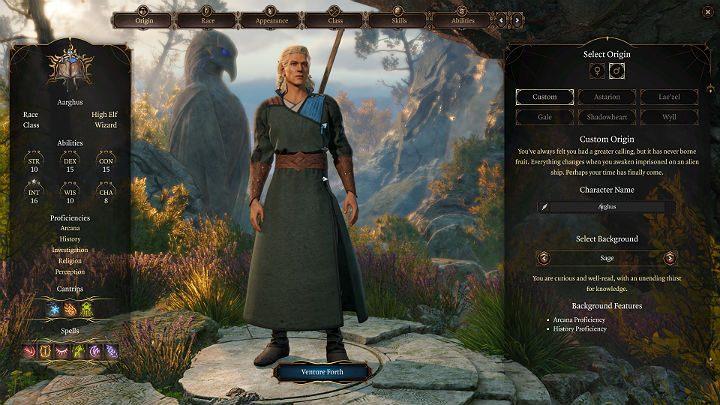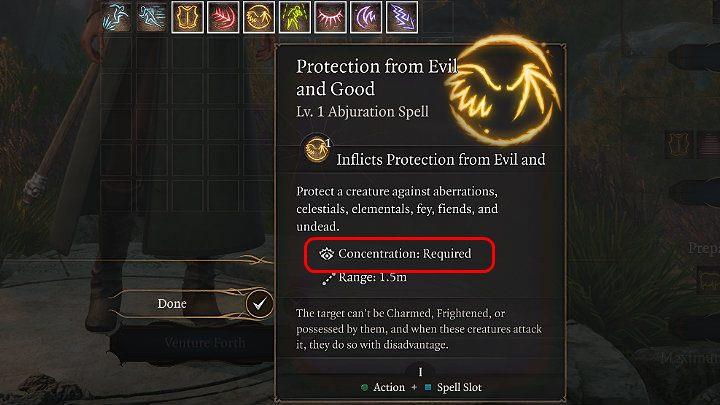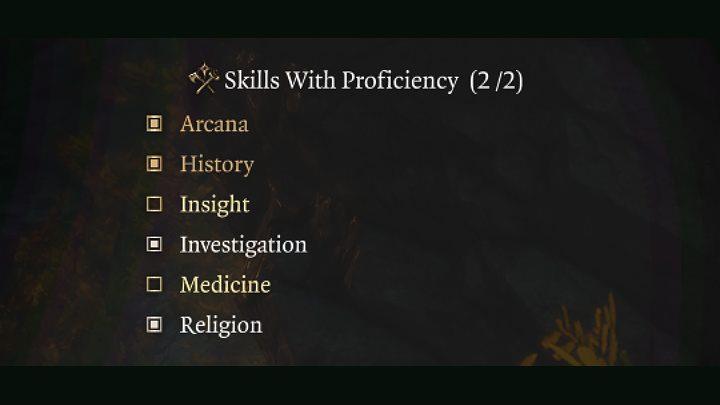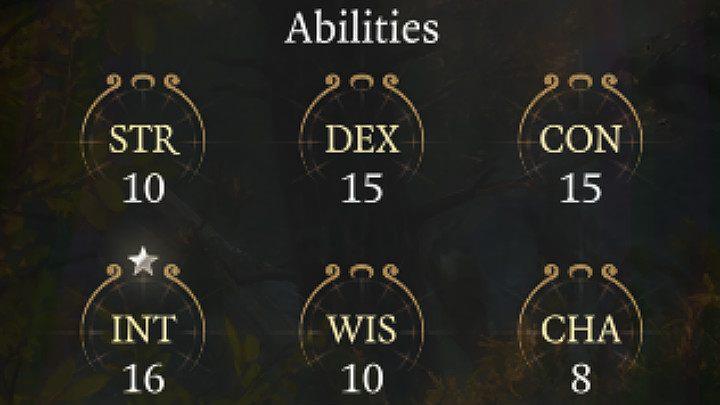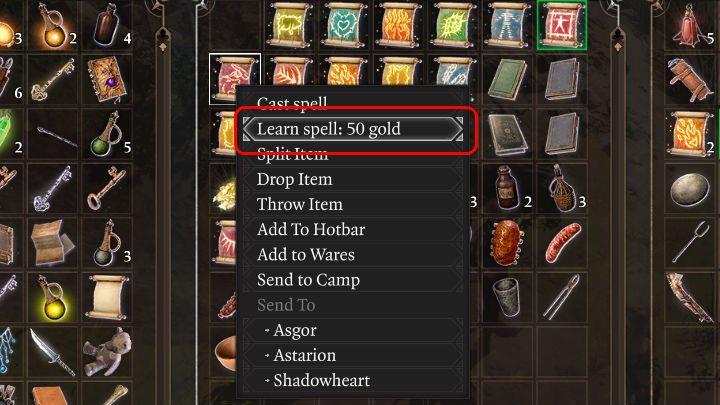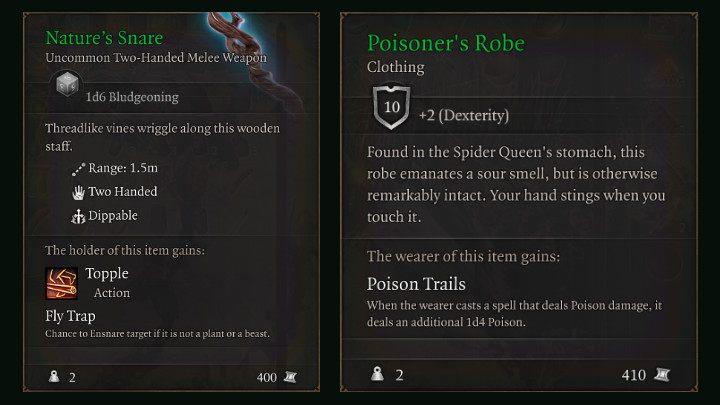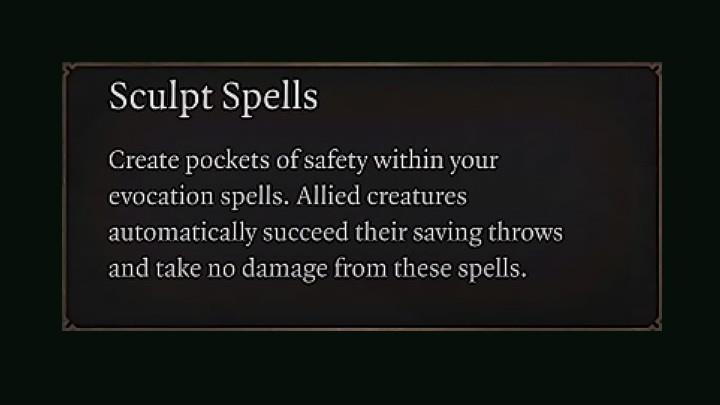In the mystical realm of Baldur’s Gate 3, Wizards wield unparalleled power, capable of unleashing devastating spells that can turn the tide of battle. However, crafting the ultimate Wizard build requires a keen understanding of their strengths and vulnerabilities. With a focus on area-of-effect spells and strategic positioning, players can transform their fragile spellcasters into formidable forces on the battlefield. This guide will delve into the best strategies for building a Wizard, highlighting optimal races, abilities, and spell selections to maximize your magical prowess while keeping your allies safe from friendly fire. Prepare to dominate your foes with intelligence and cunning as we explore the art of Wizardry in this epic adventure.
Wizard is one of the most powerful character classes available in Baldurs Gate 3. Wizards deal significant damage to one target and/or a larger group of opponents at a time at the cost of low armor class and few lifepoints. In the presented Wizard build, we focus on the Evocation specialization (subclass), which allows your hero to wield the energy of powerful elements.
When creating a new Wizard character, it can be assumed, of course, that the hero will use the rare item called Warped Headband of Intellect, which sets the character’s Intelligence at 18 points. This item can be acquired after about a few hours of gameplay, however, it is still the early access (EA) version of Baldurs Gate 3 and it is not known if the properties of some items will be changed while others might be removed completely. In such a case, you wouldn’t assign enough ability points to Intelligence, and your Wizard would become less efficient.
Race
In Baldur’s Gate 3, the choice of race significantly influences a Wizard’s effectiveness, particularly for those specializing in the Evocation subclass. The Shield Dwarf is often recommended due to its ability to wear medium armor, which enhances survivability while maintaining high spellcasting potential. This race provides bonuses to Constitution and Wisdom, helping to mitigate the Wizard’s inherent fragility. Alternatively, the Deep Gnome offers advantages like Superior Darkvision, enhancing tactical options in low-light environments. Other viable races include Red Dragonborn and Asmodeus Tiefling, each bringing unique abilities that can complement a Wizard’s spellcasting prowess. Ultimately, selecting a race that aligns with your desired playstyle can enhance your Wizard’s performance in both combat and exploration scenarios.
When choosing the right race for the Wizard class, it is definitely worth choosing the High Elf. Below is a list of all the significant bonuses your character will receive.
- 1 to Intelligence: an ability allowing the Wizard to cast spells;
- 2 to Dexterity: a useful auxiliary ability;
- Keen Senses: the hero is proficient in Perception;
- Base race speed: the distance you can travel in each round is 9 metres;
- Fey Ancestry: the hero will have an advantage during saving throws against charms, and the magic can’t put them to sleep;
- Darkvision: the hero can see in the dark within a radius of 12 meters. As a result, the character will not receive penalty when attacked in a dark room.
From all the High Elves’ cantrips available, we suggest choosing Dancing Lights.
|
|
Dancing Lights Effect: create wisps of light that illuminate in a 12m radius. Range: 18 meters. Concentration: required Additional information: characters who do not have the Darkvision skill receive penalty to attack when fighting in a dark room. With the Dancing Lights spell, you’ll be able to light up the darkness, help your team, and affect their chances of hitting the target. |
If for some reason you don’t want to play as a High Elf you can also opt for the Half-Elf or a Tiefling race. It should be noted, however, that you will then have to additionally develop Charisma.
Background
In Baldur’s Gate 3, the Wizard class stands out for its versatility and immense spellcasting potential, particularly through the Evocation subclass. Wizards are renowned for their ability to deal significant area-of-effect damage while maintaining a safe distance from combat. However, they are also characterized as “glass cannons,” possessing low durability and health, making strategic positioning crucial. The best builds for Wizards focus on maximizing Intelligence to enhance spell effectiveness, while also selecting spells that allow for crowd control and support without harming allies. With a rich selection of spells and the ability to learn new ones from scrolls, Wizards can adapt their strategies to various challenges, making them a formidable presence in any adventuring party.
When choosing the background for your Wizard, it is worth choosing between options that benefit from the developed Intelligence, and avoiding those that guarantee skills related to Charisma, which we won’t develop in this build.
- Sage: proficiency in Arcana (Intelligence) and History (Intelligence);
- Hermit: Religion proficiency (Intelligence), Medicine proficiency (Wisdom).
Concentration
Concentration is a crucial aspect of playing a Wizard in Baldur’s Gate 3, particularly when focusing on the Evocation subclass. This mechanic allows Wizards to maintain powerful spells that require sustained focus, enabling them to control the battlefield effectively. While casting concentration spells, such as Cloud of Daggers or Ice Storm, it’s essential to position yourself strategically to avoid damage, as Wizards are inherently fragile. Maintaining concentration not only amplifies your damage output but also enhances your ability to manipulate enemy movements and create advantageous situations for your allies. Therefore, building a Wizard with high Intelligence and Dexterity, along with careful spell selection, is key to maximizing their effectiveness in combat while ensuring they can maintain concentration amidst the chaos of battle.
Some Wizard’s spells are complicated enough to require concentration so that their effect is not interrupted. Unfortunately, concentration is not a lasting effect and can be interrupted in several ways.
- By casting another spell that requires concentration;
- After receiving damage while maintaining concentration, the Wizard must perform a defensive dice roll (Constitution) to ensure the effect is not interrupted.
As Wizards must maintain concentration when casting certain spells, we invest some points in the Constitution.
Skills
Wizards in Baldur’s Gate 3 are known for their powerful spellcasting abilities, making them formidable ranged combatants. Key Skills for an effective Wizard build include a focus on Intelligence, which is critical for maximizing spell effectiveness and damage output. The Evocation subclass is particularly advantageous, allowing Wizards to cast area-of-effect spells without harming allies, thanks to the Sculpt Spells feature. Essential spells such as Magic Missile, Thunderwave, and Ice Storm enable crowd control and significant damage. Additionally, investing in skills like Investigation and Religion enhances a Wizard’s versatility in both combat and exploration, ensuring they remain a valuable asset to any party while maintaining their distance from danger.
When choosing skills for your Wizard, pay particular attention to those that will benefit most from his most developed abilities, such as Intelligence and Dexterity.
Depending on the background you choose, opt for any of the following options:
- Investigation: a skill associated with Intelligence;
- Nature: a skill associated with Intelligence;
- History: a skill associated with Intelligence;
- Religion: a skill associated with Intelligence;
- Arcana: a skill associated with Intelligence;
- Acrobatics: a skill associated with Dexterity;
- Stealth: a skill associated with Dexterity;
For more information on all the skills available in Baldurs Gate 3, see the separate page of this guide revolving entirely around skills.
Abilities
Wizards in Baldur’s Gate 3 are renowned for their spellcasting abilities, particularly when specializing in the Evocation subclass. This build allows Wizards to unleash devastating area-of-effect spells while minimizing harm to allies through the Sculpt Spells feature. Key abilities include maximizing Intelligence for spell effectiveness, utilizing Dexterity for improved armor class, and maintaining a decent Constitution to enhance survivability. Wizards can learn a vast array of spells from scrolls, offering flexibility and adaptability in combat. Their primary role is to control the battlefield from a distance, using spells like Fireball, Ice Storm, and Thunderwave to manage crowds and deal significant damage without engaging directly in melee combat.
When developing Wizard’s abilities, one must first focus on Intelligence as the ability responsible for Spellcasting. Then it’s worth assigning points to Constitution and Dexterity.
We propose to allocate the ability points for your Wizard as follows:
- Intelligence: 16 points;
- Constitution: 15 points;
- Dexterity: 15 points;
- Strength: 10 points;
- Wisdom: 10 points;
- Charisma: 10 points;
Learning Spells from Scrolls
Wizards in Baldur’s Gate 3 can enhance their spell repertoire by learning spells from scrolls, a unique feature that sets them apart from other classes. To transcribe a spell from a scroll, a wizard must first have the scroll in their possession and be of the appropriate level to learn that spell. The process involves right-clicking the scroll in the inventory, which prompts a menu displaying the cost in gold to learn the spell. This cost varies depending on the spell’s level, with spells from a wizard’s own school being cheaper to acquire. Once learned, the spell is permanently added to the wizard’s spellbook, allowing for greater versatility in combat and exploration. However, it’s essential to note that while scrolls provide a valuable means of expanding spell options, they can be costly, requiring careful management of resources throughout the game.
The Wizards gain their knowledge of spells from many sources, one of which is the scrolls you will find when exploring the vast world of Baldurs Gate 3. When you find a spell scroll that you don’t know yet and you want to learn it, just click on it and choose the spell learning optionwhich will cost 50 gold pieces.
Cantrips
Cantrips in Baldur’s Gate 3 serve as essential tools for Wizards, providing versatile and low-cost spell options that can be used repeatedly without expending spell slots. For an effective Wizard build, particularly one focused on the Evocation subclass, selecting the right cantrips is crucial. Fire Bolt and Shocking Grasp are among the best choices; Fire Bolt allows for ranged damage with a reliable attack roll, while Shocking Grasp offers a strategic melee option that can incapacitate foes by preventing them from taking reactions. These cantrips not only enhance a Wizard’s combat capabilities but also help manage battlefield control, ensuring that they can contribute significantly to encounters even when higher-level spells are not available.
By creating a Wizard-class character in Baldur’s Gate 3, you will be able to choose 3 Cantrips that your character will be able to use. When looking at the list of available spells, we particularly recommend Ray of Frost, Fire Bolt, and Poison Spray.
|
|
Ray Of Frost Effect: the hero summons an icy ray of pale blue light that causes 1d8 Cold damage and reduces the target’s speed by 3 metres. Range: 18 meters. |
|
|
Fire Bolt Effect: you throw a fireball that causes 1d6 Fire damage and creates a flammable surface. Range: 18 meters. |
|
|
Poison Spray Effect: project a puff of noxious gas that deals 1d12 Poison. Range: 3 feet. Additional information: in the later stages of the game, you will find the Poisoner’s robe, which will have synergy with the Poison damage spells. |
Due to the fact that Cantrips can be used in every round with no limitations, you should select ones that you will be definitely using. Attack spells are a good choice because you will be able to continually damage your opponents without losing your spell slots.
Level 1 spells
Level 1 spells are crucial for establishing a Wizard’s capabilities in Baldur’s Gate 3. At this early stage, Wizards have access to a selection of spells that lay the groundwork for their spellcasting prowess. Key choices include Magic Missile, which guarantees hits on enemies, and Thunderwave, effective for both damage and crowd control. Additionally, spells like Grease can manipulate the battlefield by causing enemies to fall prone, while Mage Armor enhances the Wizard’s low defenses. As Wizards are inherently fragile, these spells not only help in dealing damage but also provide strategic advantages to maintain distance from foes and protect allies during combat.
Wizards have the largest pool of spells of all the characters available in the game, and during character creation you can choose the ones that your character will have at the beginning of the game. We particularly recommend Magic Missile as an extremely useful attack spell, Mage Armor that will greatly enhance your hero’s defense, and Sleep as a useful control tool.
|
|
Magic Missile Effect: you create three magical arrows, each one dealing 1d4 1 Force damage. Range: 18 meters. Additional information: the opponent cannot protect himself from this spell, and your hero cannot miss so he will always hit the target. You can choose up to 3 targets that the Wizard will hit at the same time. |
|
|
Mage Armour Effect: surround the creature with magical energy to enhance its armor class by 3. Range: 1.5 meters. Requirements: no armor. Additional information: after casting this spell, its effect lasts until a long rest in the camp. |
|
|
Thunderwave Effect: the hero unleashes a wave of deafening power that causes 2d8 Thunder damage and kickbacks creatures and objects. Range: 5 meters. Additional information: it is worth knowing that creatures thrown off from a high altitude receive a lot of damage from falling, so this is an ideal way to quickly eliminate stronger opponents. |
|
|
Sleep Effect: magically put the creatures with a total of 24 health points to sleep. Range: 18 meters. Additional information: an excellent control tool that does not require concentration. With this spell, you can completely disable an inconvenient opponent from the fight. Because in Baldurs Gate 3 you see how many health points your opponent has, you don’t have to wonder if the spell will be effective. Sleeping creatures will wake up if injured. |
|
|
Ray of Sickness Effect: the hero summons a beam of toxic energy that inflicts 2d8 Poison damage and can cause the target to be poisoned. Range: 18 meters. Additional information: poisoning is a great way for dealing with Wizards, because every turn they will have to make a defensive dice roll to maintain concentration – provided they use such spells. In the later stages of the game, you will find the Poisoner’s robe, which will have synergy with the Poison damage spells. |
|
|
Witch Bolt Effect: the hero summons a beam of energy that causes 1d12 Lightning damage and connects to the target with an electric arc. Range: 18 meters. Concentration: required Additional information: you can activate the arc of lightning in each round to automatically inflict 1d12 electrical injuries. |
Unlike the previously described Cantrips, spells use a slot when being cast which means they cannot be used indefinitely. You renew your magic slots after a long rest in the camp.
Level 2 spells
Level 2 spells in Baldur’s Gate 3 are crucial for enhancing a Wizard’s versatility and damage output. At this level, Wizards gain access to two additional spells, allowing them to tailor their spell repertoire to suit various combat scenarios. Notably, the Evocation subclass becomes available, granting the powerful Sculpt Spells feature, which ensures that area-of-effect spells do not harm allies. This capability is particularly beneficial in chaotic battles, enabling Wizards to unleash devastating spells like Scorching Ray and Cloud of Daggers without the risk of friendly fire. As players progress, selecting the right combination of spells can significantly impact their effectiveness in controlling the battlefield and maximizing damage against foes.
After reaching experience Level 3 Wizards gain access to Level 2 spells and two spell slots for this type of spells. After reaching experience level 4, you will be able to select 2 additional Level 2 spells, so you will have 4 of them in total. We particularly recommend Misty Step, Scorching Flame, Melf’s Acid Arrow and Shutter.
|
|
Misty Step Effect: your hero is surrounded by a black mist and teleported to a vacant spot in his field of vision. Range: 18 meters. Additional information: This spell is included as an additional action, so you can use it to quickly teleport your hero to a place, which will give you the High Ground advantage over your opponent. |
|
|
Scorching Ray Effect: fire three streams of fire, and each one deals 2d6 Fire damage. Range: 18 meters. |
|
|
Melf’s Acid Arrow Effect: shoot a green arrow that sprays acid and deals 4d4 instant Acid damage and 2d4 additional Acid damage once the turn ends. Range: 18 meters. Additional information: after a successful defense test, the target receives only half of the initial damage. |
|
|
Shatter Effect: cause an intense, painful noise that deals 3d8 Thunder damage for creatures and items. Range: 18 meters. Additional information: after a successful defense test, the target receives only half of the initial damage. Inorganic creatures build from materials like rocks will have their defense throws harder. |
If you are curious about what level 2 spells the Wizard has, you can check them all on a separate page of this guide.
Arcane Recovery – an important action
Arcane Recovery is a crucial ability for Wizards in Baldur’s Gate 3, allowing them to regain expended spell slots during short rests. This feature enhances a Wizard’s sustainability in prolonged encounters by enabling them to restore spell slots up to the fifth level, depending on their class level. Specifically, a Wizard can recover a number of spell slots equal to half their level (rounded up), providing flexibility in resource management. This mechanic not only mitigates the reliance on long rests but also empowers Wizards to maintain their spellcasting capabilities throughout adventures, making it an essential aspect of effective Wizard builds.
From the start, a Wizard has access to a special action that he can use once per day.
Due to the fact that Arcane Recovery is part of the action, try to use this ability before starting a fight so as not to lose a turn in which you can perform an attack to regain the spell slots.
|
|
Arcane Recovery Effect: once a day, while not in combat, you can regenerate used spell slots. Additional information: the hero can recover two Level 1 spell slots or one level 2 slot cell. |
Equipment
Equipment plays a crucial role in optimizing your Wizard build in Baldur’s Gate 3. Wizards typically rely on light armor or clothing to maintain mobility while avoiding the drawbacks of heavier armors, which can hinder spellcasting. The Evocation subclass is highly recommended, allowing you to cast powerful area-of-effect spells without harming allies, thanks to its Sculpt Spells feature. Essential equipment includes a quarterstaff or light crossbow for ranged attacks, and spells like Mage Armor to enhance your defense. Additionally, collecting various scrolls is vital, as Wizards can learn new spells from them, expanding their magical repertoire and versatility in combat.
A Wizard is a character class who relies on spells to deal damage to opponents in every possible situation. Wizard uses pole weapons (stick, staff), which often provides him with additional properties and bonuses. Your Wizard should wear Robes so you can still use the Mage Armor spell.
Poisoner’s Robe, which causes additional Poison damage when the Wizard uses spells based on Poison damage, is found in the stomach of defeated Phase Spider Matriarch. If you do not know how to defeat this strong opponent, you will find a detailed description of the fight on a separate page of this guide.
Specialization (Subclass)
The Evocation subclass is a standout choice for Wizards in Baldur’s Gate 3, primarily due to its ability to maximize area damage while minimizing risk to allies. This subclass grants the Sculpt Spells feature, allowing Wizards to cast powerful area-of-effect spells without harming their teammates. As a result, Evocation Wizards excel at controlling the battlefield with spells like Fireball and Ice Storm, delivering devastating damage from a safe distance. While they are inherently fragile, relying on high Intelligence and Dexterity to enhance their spellcasting and survivability, the Evocation subclass enables them to unleash relentless magical assaults while maintaining tactical safety for their party members.
After reaching level 2, a Wizard will have to choose one of two specializations (subclasses). If you choose the Evocation School, your character will be able to use spells that focus the energy of powerful elementals. The Evocation School is a perfect choice for Wizards who prefer to focus on causing as much damage as possible. By choosing this path you will also get an additional passive ability.
- Sculpt Spells: Wizard creates a safety pocket for the Evocation School spells. Allied creatures will automatically pass defense tests successfully and they won’t receive damage from these spells.
Upgrading abilities
Upgrading your abilities as a Wizard in Baldur’s Gate 3 is crucial for maximizing your effectiveness in combat. Focus on enhancing your Intelligence, as it directly influences your spellcasting ability and damage output. As you progress, aim for key spells that provide area-of-effect damage, such as Fireball and Ice Storm, while also considering utility spells like Misty Step for mobility. Choosing the Evocation subclass allows you to cast powerful spells without harming your allies, thanks to features like Sculpt Spells. Additionally, investing in feats that boost your spellcasting or enhance your critical hit chances will further elevate your performance, ensuring you remain a formidable force on the battlefield.
After reaching experience level 4, you will be able to improve your Ranger’s abilities by spending additional 2 points on chosen abilities. This is the best time to increase the value of the Intelligence ability to 18 points.
General tips
When crafting the best Wizard build in Baldur’s Gate 3, consider these general tips to maximize your effectiveness in combat. Focus on Intelligence as your primary ability score, as it directly influences your spellcasting power and effectiveness. Choose the Evocation subclass to minimize friendly fire while unleashing devastating area-of-effect spells. Maintain distance from enemies to leverage your squishiness, as Wizards have low health and cannot wear heavy armor. Be strategic with your spell selection, prioritizing damage-dealing options like Fireball and Ice Storm, while also incorporating crowd control spells such as Grease and Thunderwave. Lastly, remember to collect scrolls throughout your journey, as they allow you to expand your spell repertoire, enhancing your versatility on the battlefield.
Before you play as a Wizard in Baldurs Gate 3, you should know a few key tips that will bring you even closer to this class and significantly affect your hero’s effectiveness during combat.
- High Ground advantage: if possible, always try to take a position above your opponent before starting a fight (on a hill, roof, stairs, balcony, etc.), to gain the High Ground advantage. If necessary, do not hesitate to use the Misty Step spell;
- Spell slots: some of the spell slots you use can be restored with Arcaner Recovery. All the spell slots used will be recovered after a long rest in the camp;
- Scrolls: Wizards can learn additional spells from scrolls you find as you wander through the game’s vast world. If you come across a spell that your hero doesn’t know, he can always learn it.;
- Mage armor: try to keep the effect of the mage armor spell on the hero to increase his defense.
What are the key differences between the Evocation and Necromancy subclasses for Wizards
The Evocation and Necromancy subclasses for Wizards in Baldur’s Gate 3 offer distinct playstyles and abilities, catering to different strategic preferences in gameplay.
Key Differences
Evocation
- Focus on Damage: Evocation Wizards specialize in dealing massive area-of-effect damage while minimizing harm to allies. This is achieved through the Sculpt Spells feature, which allows them to exclude allies from the effects of their damaging spells like Fireball.
- Spell Enhancements: As they progress, Evocation Wizards gain abilities such as Potent Cantrip and Empowered Evocation, which enhance their damage output significantly, making them one of the most powerful offensive options available.
- Early Game Viability: Evocation is often considered stronger in early levels, as it allows for impactful spells without the risk of friendly fire, making it a safer choice for new players.
Necromancy
- Control Over Undead: Necromancy Wizards can raise the dead and control undead minions through abilities like Animate Dead and Undead Thralls, allowing them to create a small army to overwhelm opponents.
- Grim Harvest Ability: This feature allows Necromancers to regain hit points when they kill creatures, providing some sustainability in combat; however, it requires careful management of resources and positioning.
- Late Game Complexity: While powerful, Necromancy can be less effective in the early game due to its reliance on higher-level spells and the complexity involved in managing multiple summoned creatures.
Conclusion
Choosing between Evocation and Necromancy ultimately depends on your preferred playstyle. If you enjoy direct damage and protecting your allies, Evocation is likely the better choice. Conversely, if you prefer a more tactical approach that involves controlling the battlefield with undead minions, Necromancy might be more appealing. Each subclass offers unique strengths that can significantly influence your gameplay experience in Baldur’s Gate 3.
Which subclass offers more versatility in combat scenarios
When comparing the Evocation and Necromancy subclasses for Wizards in Baldur’s Gate 3, the Evocation subclass generally offers more versatility in combat scenarios.
Evocation Subclass
- Area Control and Damage: Evocation Wizards excel at dealing area-of-effect damage while protecting allies, thanks to their ability to sculpt spells. This allows them to effectively manage the battlefield by targeting multiple enemies without harming their teammates.
- Spell Variety: They have access to a wide range of offensive spells that can adapt to various combat situations, making them effective against different types of foes.
- Scaling Damage: As they level up, their spells become increasingly powerful, allowing them to remain relevant throughout the game.
Necromancy Subclass
- Summoning and Control: Necromancy Wizards focus on raising undead minions and controlling the battlefield through their summoned creatures. While this can be powerful, it often requires careful positioning and management of resources.
- Sustainability: The ability to regain hit points through their Grim Harvest feature provides some durability, but it is more situational compared to the consistent damage output of Evocation.
- Niche Utility: While they can control undead and deal necrotic damage, their effectiveness can be limited in scenarios where enemies are resistant or immune to these effects.
Conclusion
Overall, the Evocation subclass stands out for its adaptability and consistent offensive capabilities, making it more versatile in a variety of combat scenarios compared to the more specialized approach of the Necromancy subclass.
